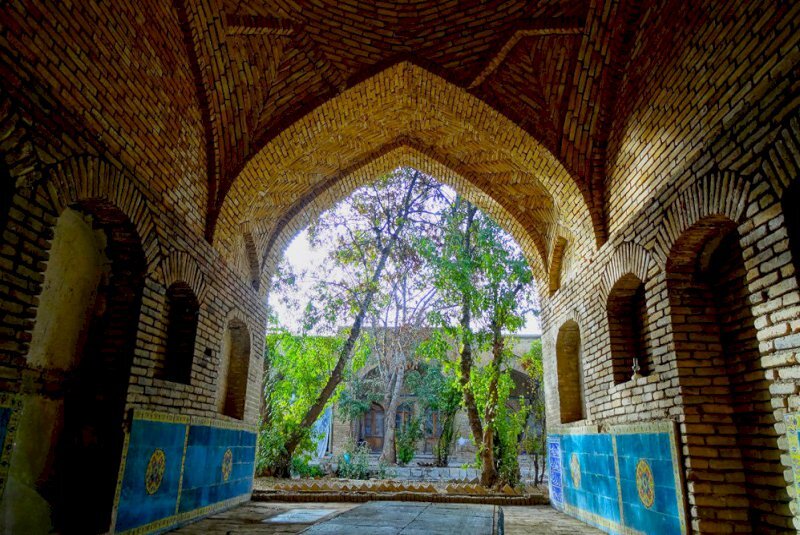Qajar-era school to turn into creative center for handicrafts

TEHRAN – The Qajar-era (1789–1925) Hojatieh School in Borujerd, the western province of Lorestan, is planned to be repurposed into a creative center for handicrafts, the provincial tourism chief has said.
A budget of 26.5 billion rials ($84,000) has been allocated to the restoration of the historical structure so far, Ata Hassanpur said on Wednesday.
As a handicrafts center, the school will be able to promote handmade works of local artisans and introduce itself as a tourist destination, the official added.
With 14 entries, Iran ranks first globally for the number of cities and villages registered by the World Crafts Council, as China with seven entries, Chile with four, and India with three ones come next. For instance, Shiraz is named a “world city of [diverse] handicrafts”, Malayer is a global hub for woodcarving and carved-wood furniture, while Zanjan has gained the title of a “world city of filigree”.
In addition, the ancient city of Shiraz has been chosen to host the 39th General Assembly of the World Crafts Council-Asia-Pacific Region (WCC-APR) in May 2023. Shiraz has a remarkable amount of handicraft pioneers. With an average age of 70, some of these pioneers are still active at their workshops. The occupational records of about 100 pioneers are collected and are annually praised by the custodians of the WCC General Office.
Available data compiled by the Ministry of Cultural Heritage, Tourism, and Handicrafts suggests the value of Iran’s handicrafts exports stood at $120 million during the first eleven months of the Iranian calendar year 1399 (March 20, 2020–February 18, 2021), Mehr reported. The country’s handicrafts exports slumped during the mentioned months in comparison to the same period last a year earlier due to the damage the coronavirus pandemic has inflicted on global trade.
The Islamic Republic exported $427 million worth of handicrafts during the first eleven months of the year 1398. Of the figure, some $190 million was earned via suitcase trade (allowed for customs-free and tax-free transfer) through 20 provinces, according to data compiled by the Ministry of Cultural Heritage, Tourism and Handicrafts. Ceramics, pottery vessels, handwoven cloths as well as personal ornamentations with precious and semi-precious gemstones are traditionally exported to Iraq, Afghanistan, Germany, the U.S., the UK, and other countries.
ABU/AM
Leave a Comment